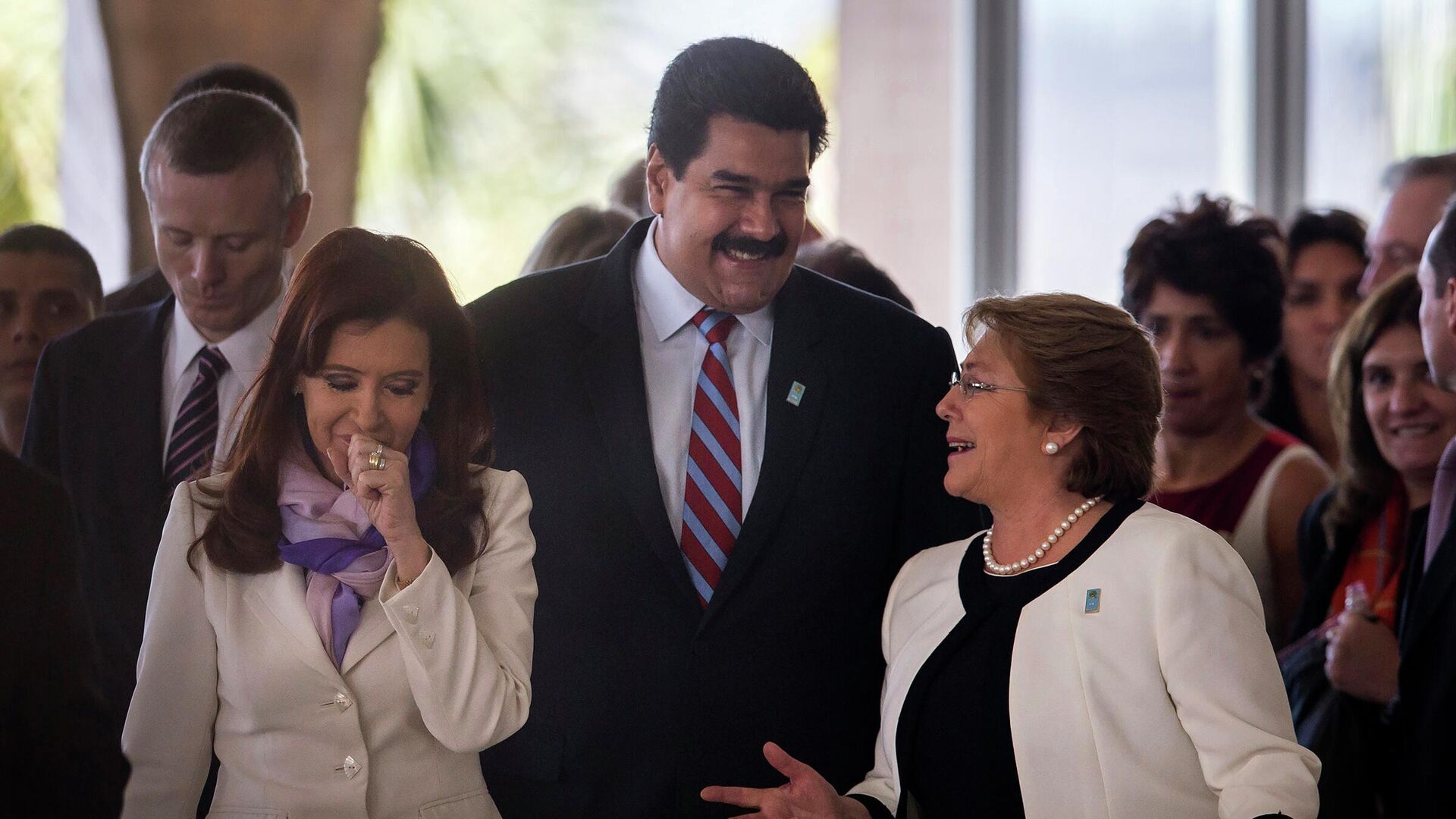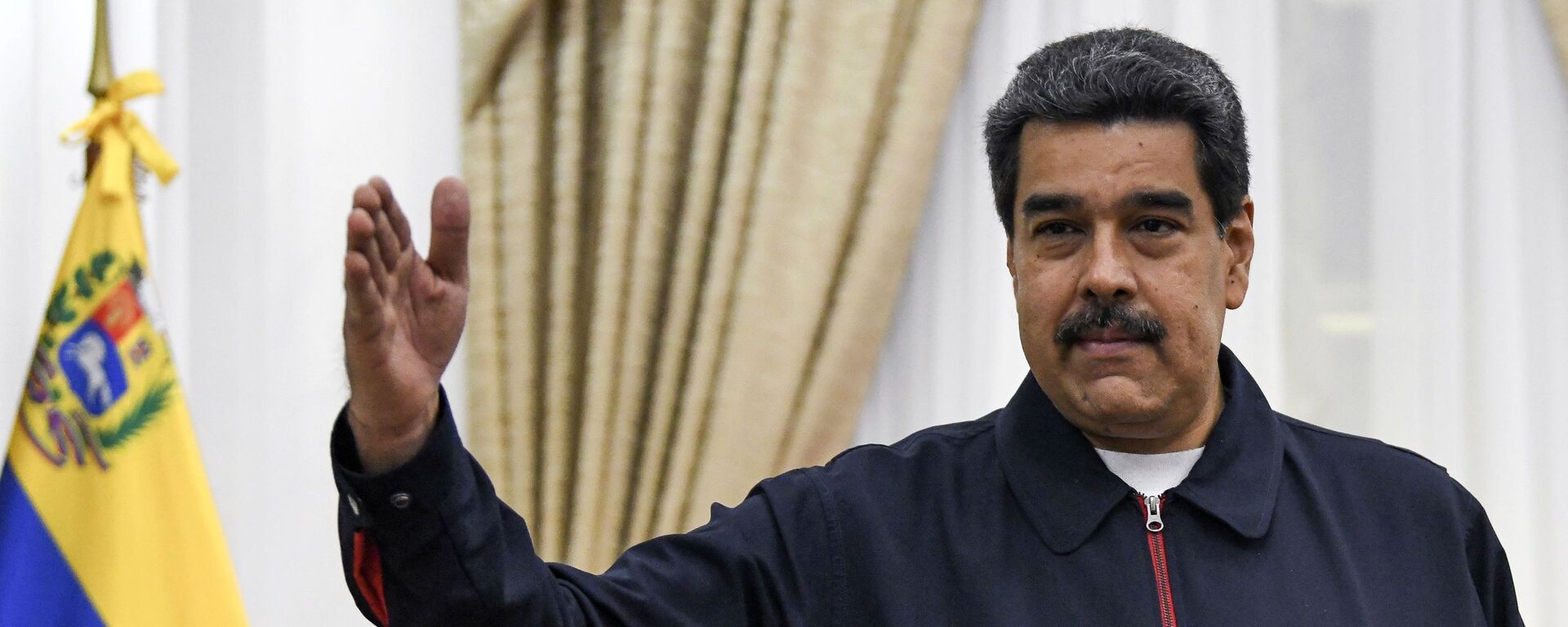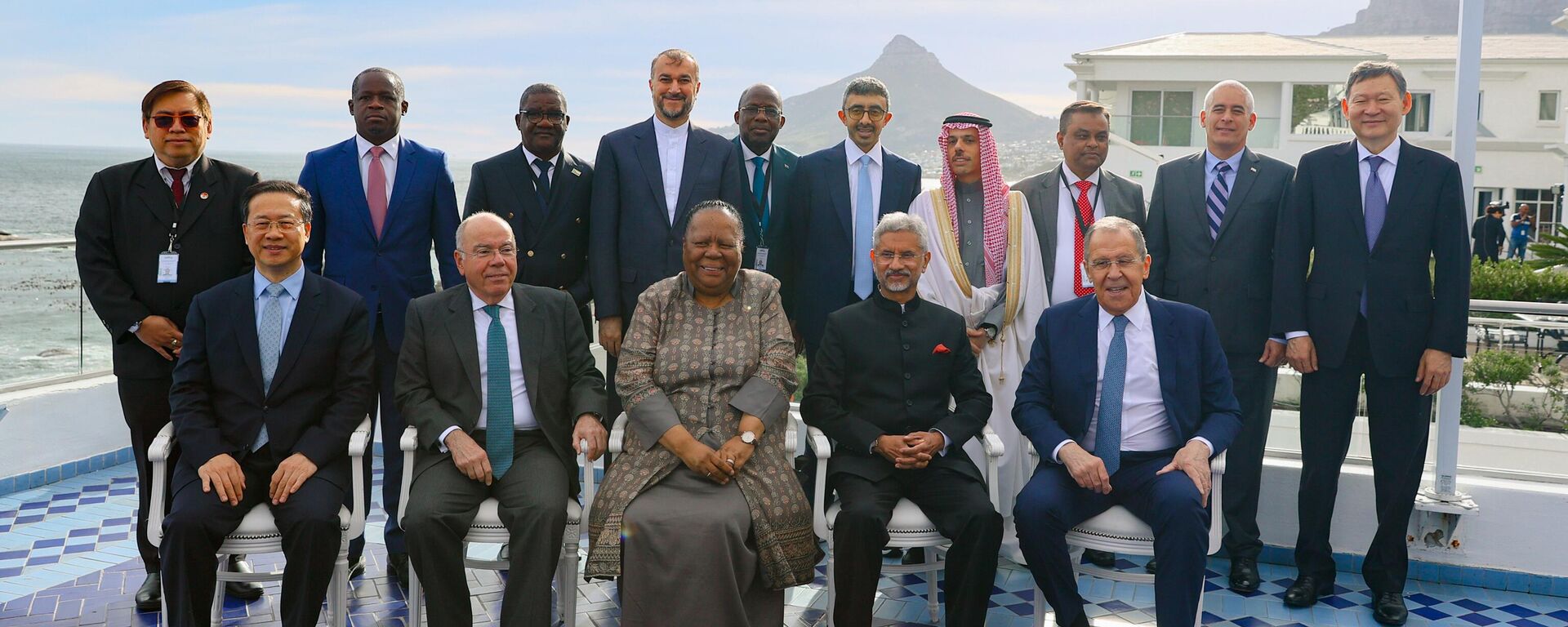Venezuela's BRICS Application: Expert Offers Insight on Potential Entry
17:08 07.08.2023 (Updated: 17:14 07.08.2023)

© AP Photo / Felipe Dana
Subscribe
Venezuela's bid to join BRICS comes amid its ongoing economic and political crisis, which has been exacerbated by US sanctions and the COVID-19 pandemic. As the South American country has struggled with hyperinflation, President Nicolas Maduro has accused the US of waging an "economic war" against his government.
Venezuela, the South American country with the world’s largest proven oil reserves, has officially applied to join the BRICS group of major emerging economies. The announcement was made by President Nicolas Maduro last week, who expressed his hope that the application will be approved soon.
BRICS, comprising Brazil, Russia, India, China, and South Africa, accounts for about 31.5% of the global gross domestic product (GDP) and 40% of the world's population. The group also operates a development bank and a contingency reserve arrangement to support its members and other developing countries.
According to Fan Hesheng, director of the Institute of Latin American Studies at Anhui University in China, Venezuela wants to join BRICS for several reasons.
"First, Venezuela has a good understanding of the identity of BRICS countries, because all BRICS countries are developing countries, especially big countries like China and Russia," the political scientist told Sputnik. "Second, the BRICS countries are strong in terms of economic strength and industrialization capacity, which Venezuela also appreciates."
Furthermore, Hesheng emphasized that the BRICS countries have performed well in recent years in terms of industrial capacity and financial sustainability.
According to the Chinese expert, the third reason is that Caracas values the sense of self-identity and mutual support among the BRICS countries, which can provide an alternative platform for cooperation and multilateralism.
"At present, BRICS is mainly a platform for economic cooperation, but in the future, BRICS countries can gradually expand their influence in the areas of political mutual trust and cultural exchanges," Hesheng said. "The US mainly focuses on developed countries, Europe, Japan, etc., while the BRICS countries mainly focus on developing countries."
Hesheng also said that the expansion of BRICS could benefit not only Venezuela but also the world economy and global governance. He said that BRICS could become a platform for cooperation among developing countries and a force for multipolarity in the world.
"BRICS countries may expand to include more countries and become a platform of cooperation for developing countries and a platform with different concepts of cooperation from developed countries," he told Sputnik. "BRICS countries share many common goals and values in global governance, which will help strengthen cooperation in global governance."
The issue of BRICS expansion will be on the agenda of the upcoming BRICS Summit slated to take place on August 22-24 in Johannesburg, South Africa.
It is not clear whether Venezuela’s application will be accepted during the summit or not, as the group has to balance its cohesion and diversity. However, some BRICS members have expressed their support for Venezuela’s initiative. China and Russia have both welcomed Venezuela’s interest in joining the group, while Brazil’s former president Luiz Inacio Lula da Silva has endorsed Maduro’s plans.
"From the perspective of development trends, if BRICS countries expand and form a larger association of developing countries, they will inevitably become a prominent pole in terms of economy, society and global governance," Hesheng concluded. "Unlike NATO and the G7, the BRICS countries are a force in a multipolar world and can play an important role in the economy, politics and global governance."
Venezuela is not the only country that has expressed interest in joining BRICS. According to officials, more than 40 countries have expressed interest in joining the bloc, and more than 50% of them have submitted official applications.
Some of these countries include Egypt, Ethiopia, Zimbabwe, Algeria, Nigeria, and Tunisia, as well as other developing countries from the Global South such as Iran, Turkiye, Argentina, Saudi Arabia, the United Arab Emirates, Belarus, and Indonesia. These countries see BRICS as a platform to enhance their cooperation and influence in the global arena.
Earlier in the day, South Africa's Department of Foreign Affairs announced that at least 34 countries have confirmed their participation in the upcoming BRICS Summit.




